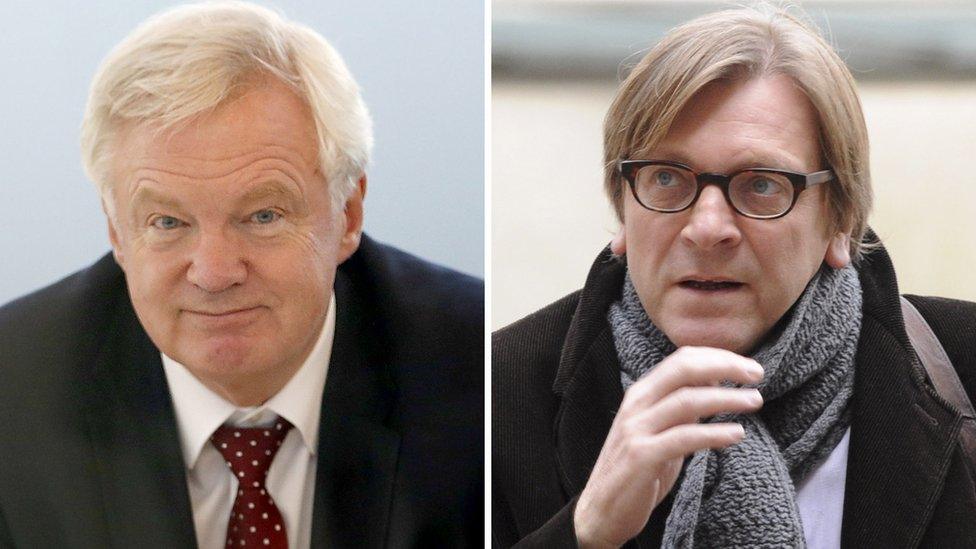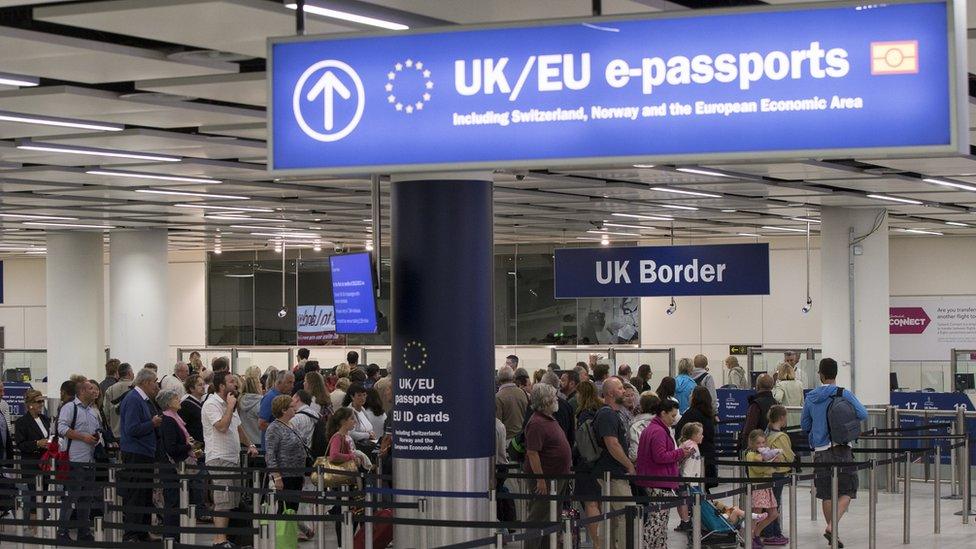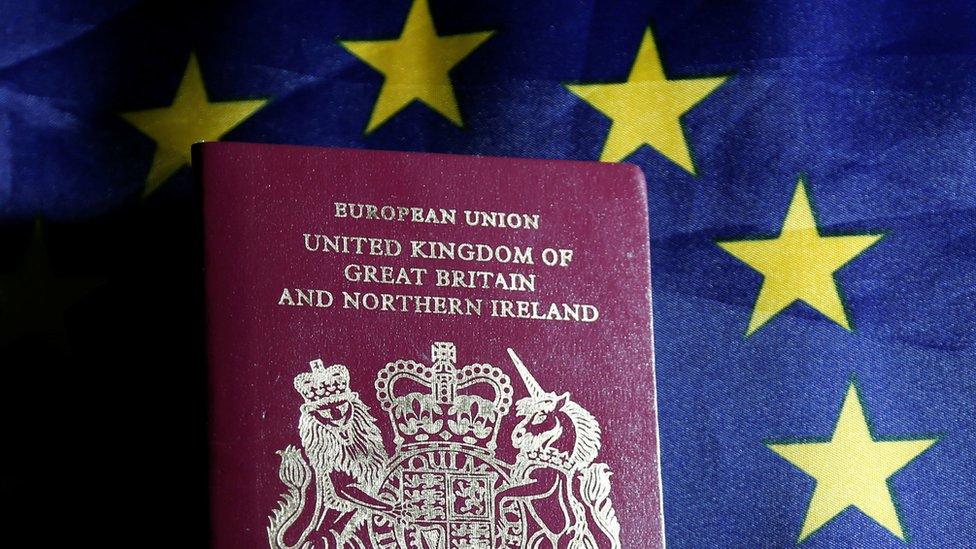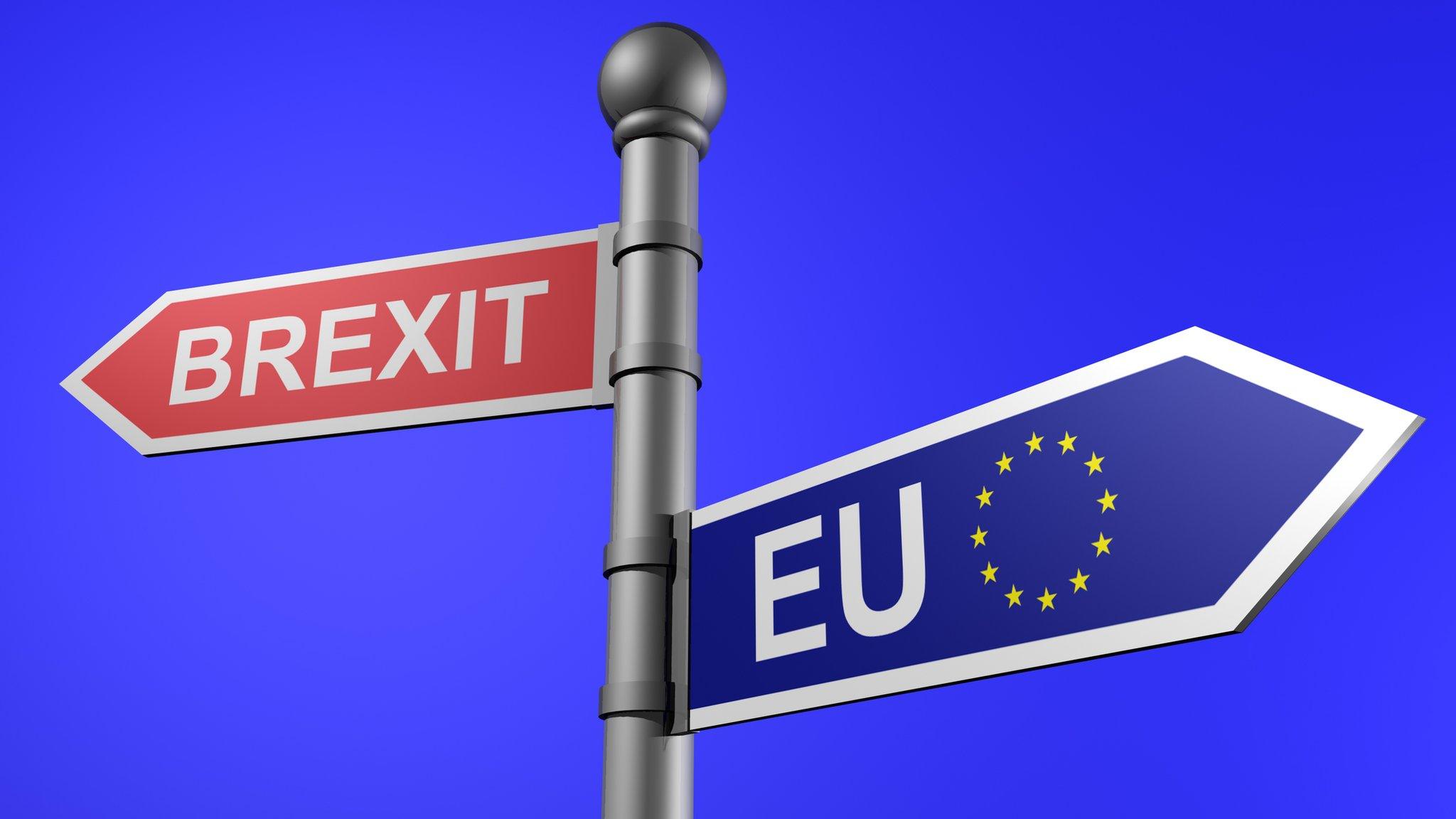Brexit: UK 'associate EU citizenship' to be fast-tracked
- Published

The UK's David Davis (L) faces tough talks with EU negotiator Guy Verhofstadt
The European Parliament's top Brexit negotiator says he plans to fast-track a proposal to offer UK nationals "associate EU citizenship".
The proposal "will be on the table of the upcoming Brexit negotiations", liberal MEP Guy Verhofstadt said.
UK nationals could have the option of paying a fee in order to keep rights such as freedom of movement in the EU and a vote in European elections.
Mr Verhofstadt said strong interest in the idea meant it could not be delayed.
Originally a liberal ALDE party colleague, Luxembourg MEP Charles Goerens, had included "associate EU citizenship" among reforms to be considered in the next EU treaty change.
But Mr Verhofstadt said "some things cannot wait until treaty change".
The proposal will also be discussed by the European Parliament when it draws up a resolution on Brexit, "right after the triggering of Article 50 in March", he said.
Mr Goerens's citizenship proposal may not convince Eurosceptics like UK Brexit Secretary David Davis, who has emphasised the importance of UK sovereignty and citizenship.
The UK government plans to trigger the EU exit procedure - Article 50, external - by 31 March.
Experts on EU law say the legal position of UK citizens post-Brexit remains uncertain, as it is possible that some aspects of EU citizenship will be retained.
Brexit: Could UK get ‘associate EU citizenship’?
Brexit time pressure
Article 50 allows just two years in which to negotiate the terms of withdrawal from the EU. Any extension would have to be agreed by all 28 member states.

Gatwick airport passport control: Freedom of movement will be a key issue
The European Parliament will have a significant voice in the negotiations. But the European Commission will handle the details, the government leaders will have a big role, and each national parliament will have to vote on the final deal.
In a statement on Friday, Mr Goerens said the European Parliament "will define its position on the Brexit agreement through a resolution during spring 2017".
"This seems to be the best opportunity to give Brexit negotiator Guy Verhofstadt the possibility to enforce the Associate EU Citizenship."
"The above-mentioned procedure makes it much more likely for the Associate EU Citizenship to succeed than through an amendment," he added.
His original proposal - now withdrawn - was attached to a long report on possible EU institutional changes.
- Published4 July 2016

- Published4 July 2016

- Published27 June 2016
